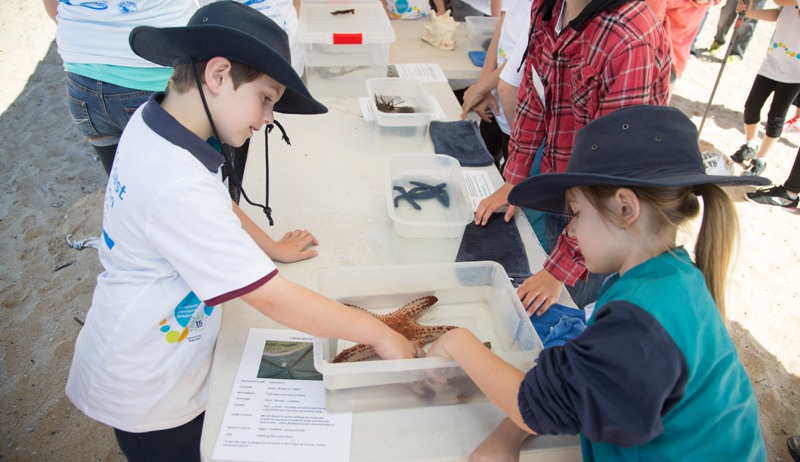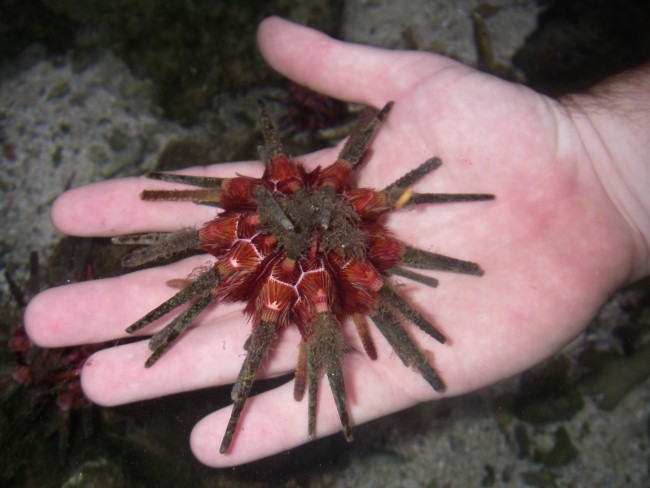
Photo: Kids In Action Sunshine Coast, 2014
Every so often teachers say to us, “I’m not sure about using live marine animals in our incursions, isn’t it better to leave them in their natural environment?”
It’s a common moral question I’m sure we have all asked ourselves before.
The short answer is yes, animals should be in their natural environments. What I also like to ask in response to this question is “how do we inspire young Australians to appreciate the living environment if they have never come into contact with it?”
Ocean Life Education was built upon the principles of respect for the environment, respect for its animals and a belief that education and understanding will honour the first two.
As a Marine Ecologist with a passion for the ocean and an avid diver and sailor, my family and I spend our leisure time at the beach or out on the ocean. When we holiday, we holiday at places that showcase the natural wonder of our oceans so our children grow up having this same love and respect for the natural environment.
We created Ocean Life Education in 2006, so we could lead the world in the changes necessary for a healthy planet. To realise this vision, we knew we would need to create a sense of ownership and protectiveness of our oceans in the students and children we teach.
Live marine animals in Education for Sustainability
Our programs are based upon the principles of Education for Sustainability.
The EfS theory “goes beyond providing information about the environment. It is a process which motivates and engages people in creating sustainable futures…” (ARIES).
Through our interactive educational programs, children learn why animals’ look and feel the way they do, how their bodies function, what their individual role is in their environment and therefore why we need to look after them.
This is how we fulfil our EfS role in engaging and equipping students for positive change that will last a lifetime.
Regulated industry and legislation
At Ocean Life Education, we are committed to animal welfare, care and sustainability. We abide by the relevant legislation such as the Animal Care and Protection Act 2001 and the Nature Conservation Act 1992.
Our animals are sourced from world leading suppliers of sustainably collected marine specimens to ensure the safety and protection of the environment.

Sea Urchin, one of the live marine animals used in the Ocean Life Education programs
Managed handling
We are dedicated to the welfare of our marine animals while in our protection and during our programs.
Our strict ‘1 finger touch’ policy helps us to maintain a positively controlled learning environment for the children and the animals. We ask young children to say and use our care for animal catch phrase “stroking not poking”.
How we use animals in our programs
Want to see what it’s like when we visit your classroom with our animals? Watch this short video when Ten’s Totally Wild joined us on a school visit.
Still want to know more? Read our Frequently Asked Questions.
If you still have questions, we’d be happy to answer them. Phone us on 07 5443 8545.


